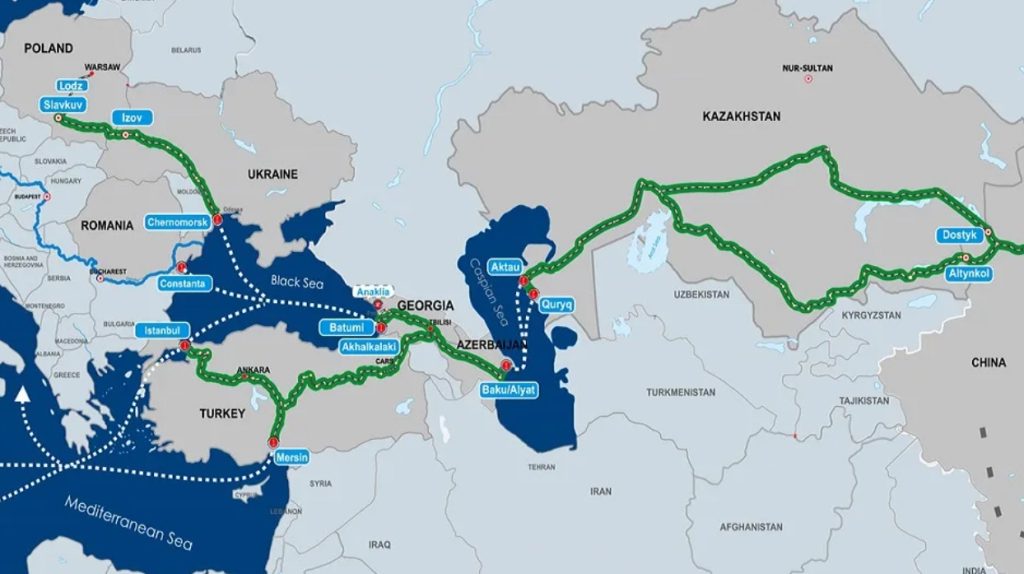Saniya Sakenova
The Kazakh government is working to implement the Roadmap to eliminate bottlenecks and develop the Trans-Caspian International Transport Route (TITR) until 2027 between Kazakhstan, Azerbaijan, Türkiye and between Kazakhstan and Georgia. This will increase the route’s capacity to ten million tons per year, the Prime Minister’s press service reported on Aug. 27.
To ensure sufficient volume of transit cargo from East to West, Kazakhstan and China signed a number of agreements on the TITR’s development in November 2023, including China-Europe container trains, which were ratified on July 1.
A single multimodal service has been established along the route to increase appeal and competitiveness. A joint venture, Middle Corridor Multimodal, was formed at the Astana International Financial Centre, uniting the railway administrations of Kazakhstan, Azerbaijan, and Georgia to manage the route equally. It focuses on digitizing and optimizing transport operations, such as border crossings and terminal procedures.
To improve the logistics service based on the “single window” principle, the IT systems of Kazakhstan Temir Zholy (KTZ) national railway company were integrated with the customs module of the Digital Trade Corridor (DTC) platform named Tez Customs, developed by Global DTC Kazakhstan.
The roadmap for the interaction between KTZ and Global DTC Kazakhstan was approved on Dec. 5, 2023, to implement the DTC platform. The information systems of Kazakhstan and Azerbaijan’s railways have already been integrated into this platform, and Georgian railways are planned for next.
Within the joint venture China-Kazakhstan Trade and Logistics Company, established in 2023, a terminal was built in the dry port of Xi’an. Opened on Feb. 28, the terminal consolidates 40% of all container trains heading towards Kazakhstan, significantly boosting transit traffic along the TITR. As a result, the transit volume along the TITR from China has nearly doubled since the beginning of the year.
In 2023, the transportation volume along the TITR increased by 65% to 2.76 million tons, up from 1.7 million tons in 2022. In the first seven months of 2024, this volume reached 2.56 million tons, a 63% increase from the same period in the previous year – 1.57 million tons.
These achievements confirm the effectiveness of joint work with partners and the importance of developing the Middle Corridor. This route attracts interest from countries along the corridor and regions in Southeast Asia, the Persian Gulf, and Europe. /// nCa, 29 August 2024 (Cross post from The Astana Times, 27 August 2024)
